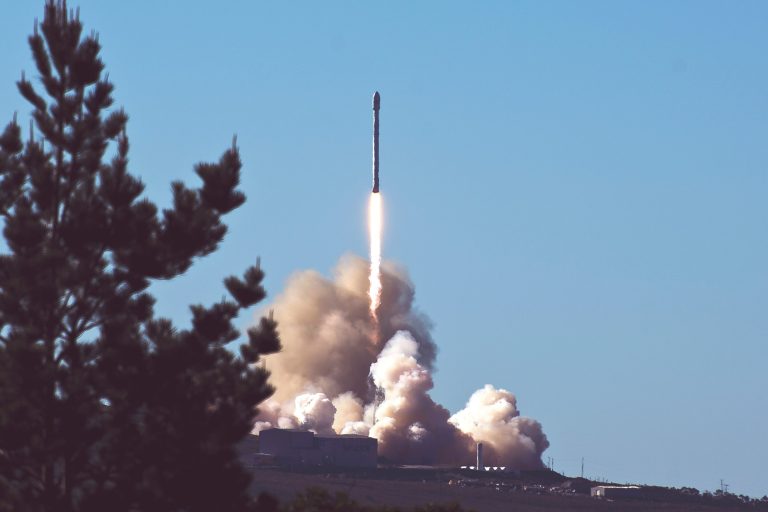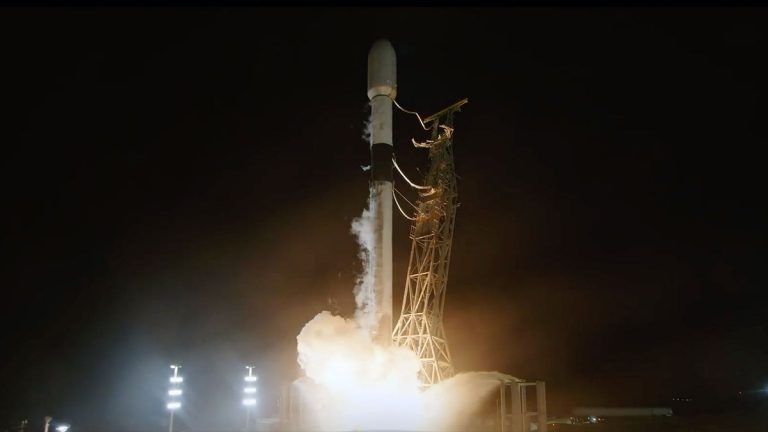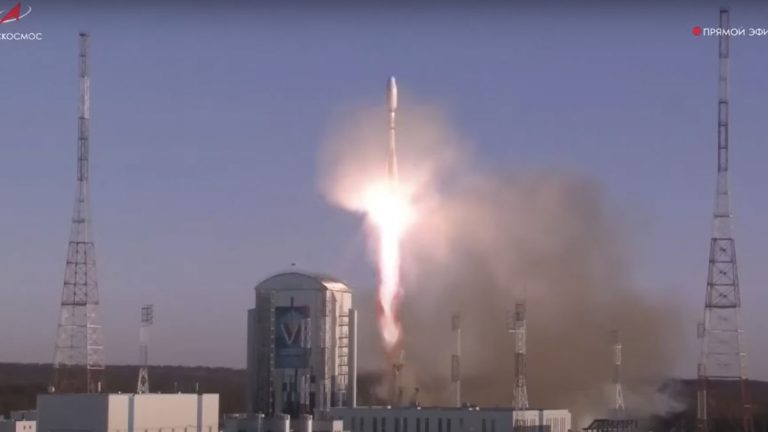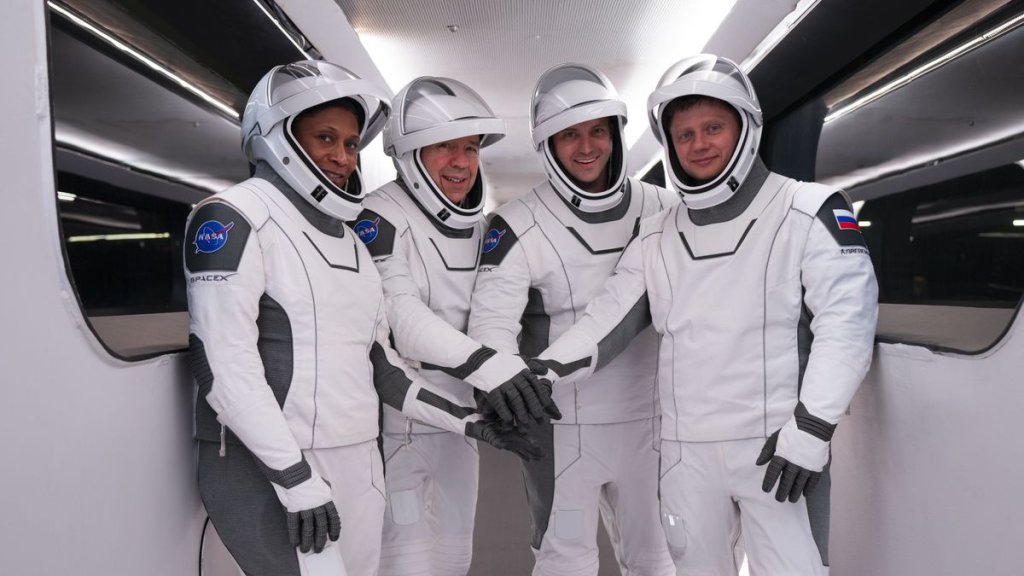
What time is the SpaceX Crew-8 astronaut launch for NASA on March 2? (Image Credit: Space.com)
A SpaceX Falcon 9 rocket will launch four astronauts to the International Space Station (ISS) for NASA on the Crew-8 mission. Liftoff is currently now scheduled for Saturday (March 2) at 11:16 p.m. EST (0416 March 3 GMT) from NASA’s Kennedy Space Center in Florida, but exactly when the mission launches will depend on weather and the launch vehicle’s readiness.
Read more: SpaceX Crew-8 astronaut mission: Live updates
Crew-8 will launch NASA astronauts NASA astronauts Matthew Dominick, Michael Barrett, Jeannette Epps and Russian cosmonaut Alexander Grebenkin on a six-month mission to the ISS. The space quartet will relieve their colleagues of SpaceX’s Crew-7 mission. Here’s when they’ll launch and how long the flight will be.
What time will SpaceX launch the Crew-8 astronauts?

Currently, SpaceX is targeting Saturday, March 2, for the launch of its Crew-8 astronaut mission for NASA. Liftoff is set for an instantaneous launch window at 11:16 p.m. EST (0416 GMT).
An “instantaneous window” means SpaceX only must launch at its exact target time in order to reach the ISS on time, unlike some NASA shuttle missions that had a few minutes of hold time to work with.
Earlier, SpaceX was targeting a Crew-8 launch just after midnight on March 1, with the U.S. Space Force’s 45th Weather Squadron forecasting an 85% chance of good weather at launch time. High winds at liftoff and the potential of flying through precipitation or rain are the only concern, according to the forecast.
But NASA and SpaceX delayed the launch to late Saturday due to unfavorable offshore weather.
“Joint teams selected the updated launch opportunity due to unfavorable weather conditions forecast for Friday, March 1, in offshore areas along the flight track of the Dragon spacecraft,” NASA wrote in an update early Feb. 29. “High wind and waves along the eastern seaboard have been observed and are forecast to continue through Saturday morning. In the unlikely case of an abort during launch or the flight of Dragon, the wind and wave conditions must be within acceptable conditions for the safe recovery of the crew and spacecraft.”
NASA and SpaceX initially aimed to launch the Crew-8 mission on Feb. 22, but delayed it to Feb. 28 (and ultimately March 1) to allow extra time following SpaceX’s successful Feb. 18 launch of a private Intuitive Machines moon lander from the same pad.
Related: ‘It’s white-knuckle time:’ NASA chief stresses safety for Crew-8 launch
Can I watch SpaceX’s Crew-8 astronaut launch online?
NASA will offer a free livestream online via its NASA TV YouTube channel and NASA+ streaming service, as well as its NASA TV broadcast service. The webcast will actually begin late on March 2 at 7:15 p.m. EST (0015 March 3 GMT) and run through spacecraft separation.
About 2 hours after launch, NASA is expected to hold a post-launch press conference to discuss the results of the launch. That briefing will also be livestreamed via NASA TV and NASA+.
SpaceX will offer its own live webcast of the Crew-8 launch on its @SpaceX account on X (formerly Twitter), starting one hour before liftoff, which is March 2 at 10:16 p.m. EST (0316 GMT).
Space.com will simulcast NASA’s Crew-8 launch livestream on our VideoFromSpace YouTube channel, beginning March 2 at 7:15 p.m. EST. You can also see that livestream at the top of this page.
Docking coverage

If SpaceX successfully launches the Crew-8 astronauts on March 2, less than 24 hours to reach the ISS and you’ll be able to watch that live, too.
NASA will provide a livestream of SpaceX’s Crew-8 docking operations starting Sunday, March 3, at 11:30 a.m. EST (1630 GMT), according to a NASA schedule.
If all goes well, the Crew-8 Dragon space capsule Endeavour will dock itself at the ISS at 2:10 p.m. EST (1910 GMT) on March 2, parking at a forward-facing berth on the station’s U.S.-built Harmony module.
Who are the Crew-8 astronauts?
While SpaceX originally designed its Dragon crew capsule to carry up to seven astronauts, the company has only flown a maximum of four people at a time its crewed vehicles. The Crew-8 mission follows that pattern. You can see detailed biographies of the Crew-8 astronauts in our Meet the Crew-8 Astronauts guide, but here is a brief synopsis.
Crew-8 is commanded by NASA astronaut Matthew Dominick, 42, a U.S. Navy test pilot who joined NASA’s astronaut corps in 2017. This will be his first career spaceflight.
Veteran NASA astronaut Michael Barratt, 64, is a physician-turned-astronaut who serves as Crew-8 pilot and began his astronaut work in 2000 after serving as flight surgeon since 1992. Unlike his crewmates, Barrett has two spaceflights under his belt: a six-month expedition on the ISS in 2009 and the 13-day STS-133 shuttle flight in 2011, which marked the final voyage of NASA’s space shuttle Discovery.
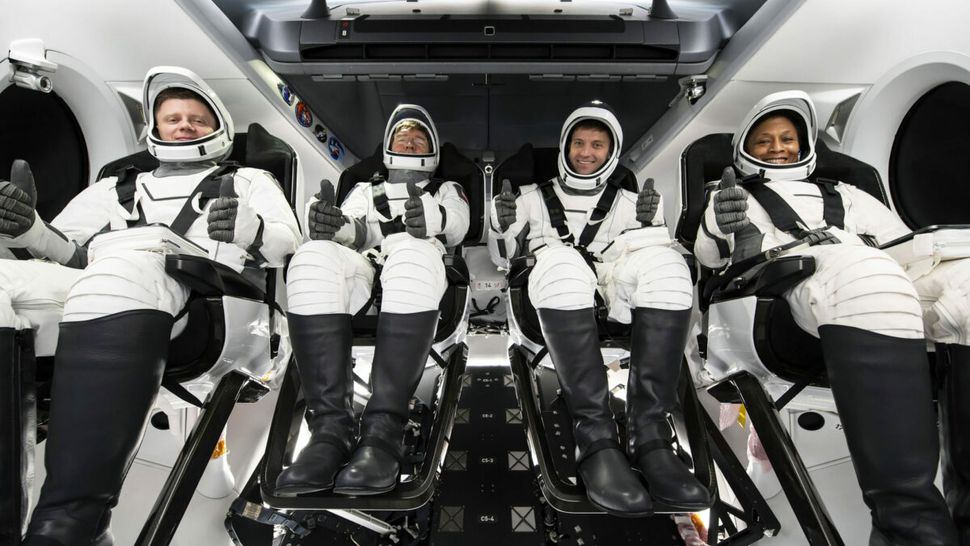
NASA astronaut Jeannette Epps, 53, is a Crew-8 mission specialist who making her first spaceflight. Epps is a physicist and aerospace engineer who joined NASA’s astronaut corps in 2009 after working for the Ford Motor Co. and the Central Intelligence Agency.
Rounding out the crew is Russian cosmonaut Alexander Grebenkin, 41, of the Roscosmos space agency. Grebenkin joined Roscosmos’ cosmonaut corps in 2018 after flying as a pilot for the Russian Air Force. He has degrees in engineering, maintenance and repair of aircraft radio navigation systems, and in radio communications, broadcasting, and television.
Related: SpaceX Crew-8 astronauts eager for launch to ISS on March 1: ‘Things surprise you, but we’re ready’
How long is SpaceX’s Crew-8 mission?

While SpaceX’s full Crew-8 mission for NASA will last six months (from launch to landing), the actual launch will be over in about 13 minutes.
Crew-8 will mark the fifth flight of SpaceX’s Dragon crew capsule Endeavour, which the company used to launch its first-ever crewed flight for NASA – Demo-2, in May 2020. It has been used to fly three NASA crews (Crew-2 and Crew-6 are the others) and the private Ax-1 mission for Axiom Space.
SpaceX has not listed any previous flights for the Falcon 9 first-stage booster for Crew-8. The rocket is expected to return to Earth and land at SpaceX’s Landing Zone 1 at the nearby Cape Canaveral Space Force Station for later reuse.
| Time (hr:min:sec) | Event | Header Cell – Column 2 |
|---|---|---|
| T-00:45:00 | SpaceX Launch Director ‘Go’ for Fueling | Row 0 – Cell 2 |
| T-00:42:00 | Crew Access Arm Retracts | Row 1 – Cell 2 |
| T-00:39:00 | Dragon Launch Escape System Armed | Row 2 – Cell 2 |
| T-00:35:00 | RP-1 propellant loading begins | Row 3 – Cell 2 |
| T-00:35:00 | 1st stage liquid oxygen (LOX) loading begins | Row 4 – Cell 2 |
| T-00:16:00 | 2nd stage LOX loading begins | Row 5 – Cell 2 |
| T-00:07:00 | Falcon 9 engine chilldown begins | Row 6 – Cell 2 |
| T-00:5:00 | Dragon on internal power | Row 7 – Cell 2 |
| T-00:01:00 | Flight computer prelaunch checks | Row 8 – Cell 2 |
| T-00:01:00 | Fuel tanks at flight pressure | Row 9 – Cell 2 |
| T-00:00:45 | Launch Director gives ‘GO’ for launch | Row 10 – Cell 2 |
| T-00:00:03 | Ignition Sequence Start | Row 11 – Cell 2 |
| T-00:00:00 | Falcon 9 Liftoff! | Row 12 – Cell 2 |
| T+00:00:58 | Max Q | Row 13 – Cell 2 |
| T+00:02:26 | 1st stage main engine cutoff | Row 14 – Cell 2 |
| T+00:02:29 | Stage Separation | Row 15 – Cell 2 |
| T+00:02:37 | 2nd stage engine start | Row 16 – Cell 2 |
| T+00:02:43 | 1st stage boostback burn starts | Row 17 – Cell 2 |
| T+00:03:30 | 1st stage boostback burn ends | Row 18 – Cell 2 |
| T+00:06:16 | 1st stage entry burn starts | Row 19 – Cell 2 |
| T+00:06:27 | 1st stage entry burn ends | Row 20 – Cell 2 |
| T+00:07:21 | 1st stage landing burn | Row 21 – Cell 2 |
| T+00:07:38 | 1st stage landing | Row 22 – Cell 2 |
| T+00:08:49 | 2nd stage engine cutoff | Row 23 – Cell 2 |
| T+00:11:55 | Dragon separation | Row 24 – Cell 2 |
| T+00:12:43 | Dragon nosecone opens | Row 25 – Cell 2 |
What if SpaceX can’t launch the Crew-8 mission?
While the weather looked promising for SpaceX’s Crew-8 launch in the wee hours of March 1, SpaceX did have to burn through its initial backup dates available for the mission.
“Of course, we have two backup opportunities,” Steve Stitch, NASA’s Commercial Crew program manager, said in a Feb. 25 briefing. “Another one in the evening on March 1 at 11:41 p.m. Eastern and then another a day later, March 2, at 11:16 p.m. Eastern.”
The weather outlook worsened slightly for a potential launch on March 1 at 11:41 p.m. EST (0441 GMT), dropping to a 65% chance of good weather (down from 85%) for that attempt, according to the 45th Weather Squadron.
The weather forecast worsens for a 48-hour delay, dropping to a 40% chance of good weather.
If SpaceX is unable to launch on March 2, it does have at least one more backup opportunities on March 3.
The company could attempt to launch Crew-8 on Sunday, March 3, at 10:53 p.m. EST (0352 on March 4 GMT), SpaceX wrote in a mission overview.
Editor’s note: You can watch SpaceX’s Crew-8 launch to the ISS on this page beginning Feb. 29 at 8 p.m. EST (0100 on March 1 GMT). This story was updated at 1 a.m. EST to reflect the new launch day for the SpaceX Crew-8 mission.


